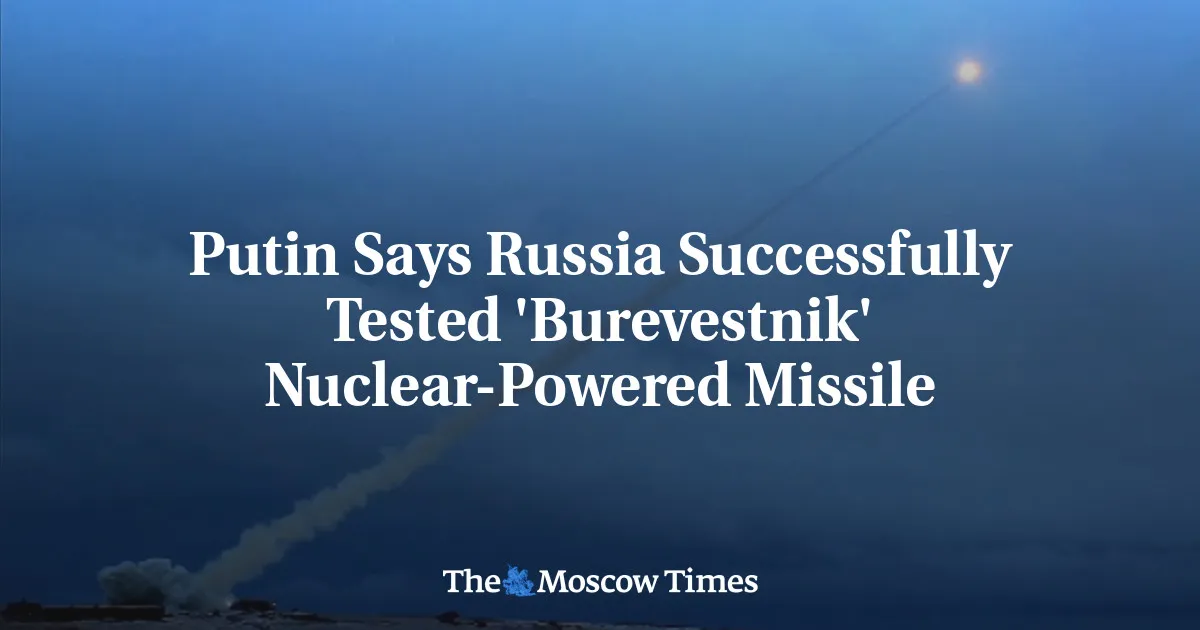
On early Sunday, President Vladimir Putin announced that Russia has successfully conducted a test of its nuclear-powered intercontinental cruise missile, known as the Burevestnik. This significant development in Russia's military capabilities was confirmed by Valery Gerasimov, the Chief of the General Staff, who reported that the test took place the previous Tuesday. During the test, the missile traveled an impressive distance of 14,000 kilometers (approximately 8,700 miles) over a span of about 15 hours.
According to Gerasimov, the technical specifications of the Burevestnik enable it to strike with guaranteed precision against highly fortified targets at any distance. Putin emphasized the exceptional nature of this weapon, stating, “It is truly a unique weapon, one that no other country in the world possesses.” This statement underscores Russia's commitment to advancing its military technology and enhancing its strategic deterrence capabilities.
During his visit to one of the command centers of the Russian joint group of forces, Putin instructed military officials to prepare the necessary infrastructure to integrate the Burevestnik into the Russian armed forces. This directive signals an urgent push towards operationalizing the missile, highlighting its importance in Russia's defense strategy.
The confirmation of the Burevestnik tests comes after months of satellite imagery and navigation warnings that hinted at a potential launch. This missile has been a focal point of Putin's military ambitions since it was first unveiled in 2018, where he claimed it to be “invincible” with an almost unlimited range capable of bypassing American missile defenses. The missile, which NATO refers to as the SSC-X-9 Skyfall, made headlines in 2019 when a failed test resulted in a tragic recovery mission in the Arctic.
This successful test of the Burevestnik highlights the ongoing developments in global military technology and raises questions about the future of international defense dynamics. As this story continues to evolve, the implications of Russia's advancements in missile technology will be closely monitored by military analysts and global leaders alike.